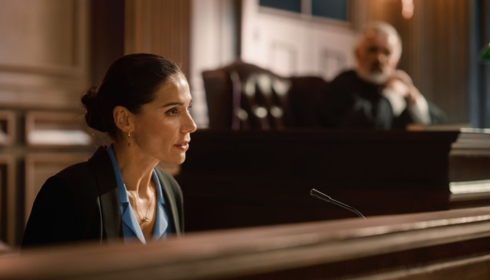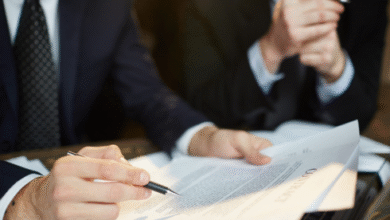
When Every Word Counts: The Crucial Role of Expert Witnesses in Modern Litigation
Courtrooms have always been places where words carry immense weight. A single phrase can tilt the balance between conviction and acquittal, liability and freedom, financial loss and recovery. While lawyers are the ones shaping arguments, there’s another figure quietly but powerfully influencing the outcome: the expert witness. These professionals bridge the gap between specialized knowledge and everyday understanding, translating complex fields like finance, psychology, and forensics into testimony that judges and juries can actually grasp.
Why Expert Witnesses Matter More Than Ever
In an era where legal battles often hinge on technical details, the role of expert witnesses has expanded dramatically. Think about financial disputes—stocks, insider trading, securities fraud. These aren’t just about “who said what” but about dense numbers, regulatory frameworks, and market behavior. For most people, including the jury, that world feels like another language. That’s where an expert witness for securities litigation steps in. Their testimony doesn’t just clarify; it often decides whether justice tips in favor of an investor or a corporation. Without them, the courtroom risks becoming a place of confusion instead of resolution.
The Human Side of Expert Testimony
It’s easy to picture expert witnesses as purely technical minds, standing in front of a courtroom rattling off jargon. But in reality, their effectiveness is measured less by raw knowledge and more by communication. Can they explain without overwhelming? Can they remain neutral even under intense cross-examination? A witness who seems biased or defensive loses credibility instantly. Judges and juries aren’t swayed by brilliance alone—they’re swayed by clarity, humility, and the ability to cut through noise. That’s why many seasoned attorneys say the right expert isn’t just “smart,” they’re relatable.
Criminal Cases: A Different Arena Altogether
While civil disputes often revolve around money and contracts, criminal cases carry higher stakes: freedom, reputation, sometimes even life. The role of an expert witness for criminal case proceedings is unique because the pressure is higher, and the narratives are often emotionally charged. A forensic pathologist explaining cause of death, a digital analyst tracing online behavior, or a ballistics specialist reconstructing a crime scene—each brings technical precision to stories that might otherwise be shaped only by speculation or witness memory. These experts don’t just inform the court; they anchor it in facts when emotions run dangerously high.
Psychology Experts and the Mind’s Mysteries
Few areas highlight the courtroom’s complexity quite like psychology. Understanding human behavior, trauma, memory, and even deception requires careful expertise. Attorneys often need to find a psychology expert witness when questions of intent, capacity, or reliability arise. For example, was a defendant fully aware of their actions? Is a witness’s recollection likely tainted by trauma? Is a victim showing signs of long-term psychological harm? These aren’t questions that a jury can—or should—answer alone. Psychology experts give voice to the invisible, translating the science of the mind into testimony that shapes verdicts in profound ways.
The Balancing Act: Neutrality vs. Persuasion
There’s a paradox at the heart of being an expert witness. On one hand, they’re hired by one side, so naturally there’s an expectation of alignment. On the other, their credibility hinges on neutrality. If they appear like “hired guns,” their testimony collapses. The best experts walk this tightrope by sticking firmly to data, evidence, and professional standards while presenting their findings in a way that subtly reinforces the case at hand. Their role isn’t to advocate—it’s to illuminate. Done right, that illumination speaks louder than advocacy ever could.
Challenges Experts Face in the Courtroom
Being an expert witness isn’t glamorous. Cross-examinations can feel like verbal ambushes, with opposing lawyers trying to discredit not just the evidence but the witness themselves. Every line of their résumé, every published article, even past court appearances might be scrutinized. Experts need resilience, not just knowledge. They must keep calm when questioned aggressively, hold their ground without arrogance, and admit limitations when necessary. Paradoxically, admitting “I don’t know” at times can strengthen credibility—it signals honesty instead of defensiveness.
The Selection Process: Why It’s Never Random
Lawyers don’t pick expert witnesses the way you’d grab a name out of a directory. It’s a meticulous process involving reputation checks, prior testimony reviews, and sometimes mock cross-examinations. The courtroom is as much about perception as it is about truth, and an expert’s demeanor can sway perception heavily. A brilliant professional who struggles with communication might be less effective than someone with slightly less expertise but a gift for clarity. At the end of the day, the law doesn’t reward knowledge alone; it rewards knowledge that can be understood.
Looking Ahead: The Future of Expert Testimony
As technology advances, so too will the types of experts called into court. Twenty years ago, the idea of a social media expert testifying about online footprints would’ve sounded absurd. Today, it’s routine. Tomorrow, we might see experts in artificial intelligence ethics, climate data analysis, or even neuroscience-based lie detection. This evolution reminds us that the courtroom is not a static institution—it adapts alongside society, and expert witnesses will always be part of that adaptation.
Closing Thoughts
Behind every dramatic verdict, there are often quieter voices that never make headlines. Expert witnesses are among them. They don’t argue like attorneys or deliberate like jurors, but their contributions often define the line between chaos and clarity. Whether it’s finance, crime, psychology, or emerging tech, these individuals play a role that’s both understated and indispensable. In a world where information grows more complex every year, their ability to translate and ground the truth ensures that justice has a fighting chance.
